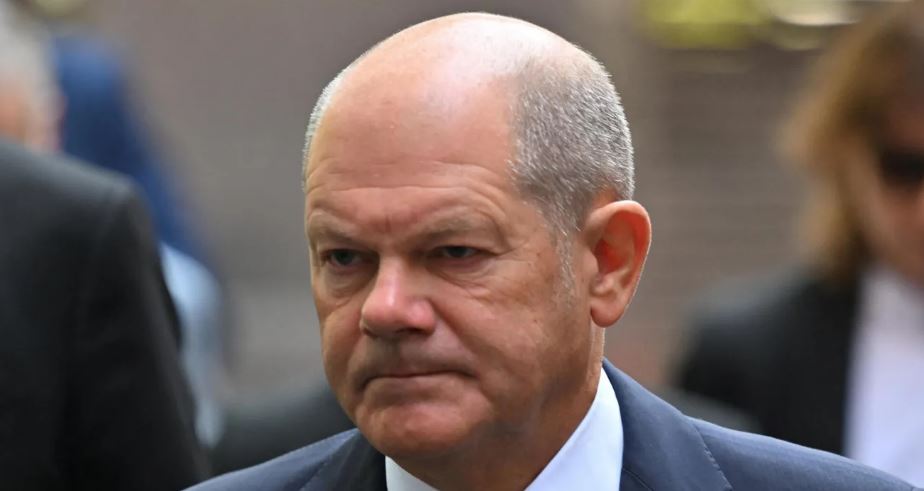In an unprecedented turn of events, the German government collapsed on December 16, 2024, following a dramatic confidence vote in the Bundestag, in which Chancellor Olaf Scholz lost significantly. This political upheaval comes as Europe faces some of its most daunting challenges since World War II, involving economic instability, security threats, and a shifting global political landscape.
The fall of one of Europe’s most stable and powerful governments is a sobering reminder of the growing turbulence in global politics. It raises critical questions about Germany’s political future, the broader implications for the European Union (EU), and the ability of Europe to navigate an increasingly complex geopolitical landscape.
Scholz’s decision to hold a vote that he anticipated would result in a loss, thereby leading to the dissolution of his government, was referred to as a “kamikaze” move by the German tabloid Bild. However, this is generally the only method through which a German government can dissolve parliament and trigger early elections.
Scholz said in a message on the social media platform X ( formerly Twitter) ,
” Politics is not a game. The decision whether we invest in our cohesion and our prosperity is so fundamental that it must be made by the sovereign itself: by the voters. I therefore ask all my fellow citizens for their trust – and for their support: for a country whose best days are not behind it, but ahead of it. Statement by the Federal Chancellor of the Federal Republic of Germany on the motion pursuant to Article 68 of the Basic Law”.
Politik ist kein Spiel.
Die Entscheidung, ob wir in unseren Zusammenhalt und unseren Wohlstand investieren, ist so grundlegend, dass sie vom Souverän selbst getroffen werden muss: Von den Wählerinnen und Wähler.
Ich bitte darum alle Mitbürgerinnen und Mitbürger um ihr Vertrauen…
— Olaf Scholz (@OlafScholz) December 16, 2024
This process was intentionally designed by the post-war founders of modern Germany to prevent the political instability experienced during the Weimar era. The confidence vote itself does not indicate a political crisis; rather, it is a standard constitutional mechanism that has been used by recent German chancellors five times to resolve political deadlock. Notably, Gerhard Schröder utilized it on two occasions.
The Confidence Vote and Its Outcome
Chancellor Scholz, who has been at the helm of Germany since 2021, called for a vote of confidence himself, knowing well he might lose, to precipitate new elections. The vote resulted in 394 against, 207 in favor, and 116 abstentions, marking a clear defeat for Scholz’s three-party coalition government comprising the Social Democrats (SPD), the Greens, and the Free Democrats (FDP). This coalition had been marked by internal discord, particularly over economic policy, budget constraints, and Germany’s role in European and global affairs.
The collapse was primarily triggered by Scholz’s decision to dismiss Finance Minister Christian Lindner, a move that led to the FDP withdrawing from the coalition. This left Scholz with a minority government alongside the Greens, prompting the confidence vote. The vote’s result now paves the way for new elections, likely to be held in early 2025, far earlier than the scheduled September election.
Reasons Behind the Collapse
Several factors contributed to this political breakdown:
-
Economic Disputes: The German economy, Europe’s largest, has been struggling with stagnation, inflation, and the aftershocks of global events like the war in Ukraine and energy shortages. Scholz’s government faced internal disagreements over how to stimulate growth, with debates on fiscal policy, debt brakes, and investments in green energy versus austerity measures.
-
Leadership Challenges: Scholz, often criticized for lacking charisma and decisiveness, struggled to hold together a coalition with vastly different ideologies. The tension between the pro-business FDP and the environmentally-focused Greens was palpable, especially concerning climate action and economic strategy.
-
External Pressures: The timing couldn’t be worse, with geopolitical tensions high. The war in Ukraine has escalated, Russia has issued threats against NATO allies, and the election of Donald Trump in the United States has cast doubts over transatlantic alliances and trade policies. Germany, traditionally a leader in European stability, now faces a leadership vacuum at a critical juncture.
Political and Economic Repercussions
The immediate fallout includes:
-
Political Uncertainty: Germany will operate under a caretaker government until new elections are held, likely in February 2025. This interim period could see policy paralysis, especially in critical areas like defense, where Germany has been ramping up spending due to security concerns.
-
Economic Impact: German borrowing costs have jumped, and the euro has experienced volatility in response to the news. Investors and businesses are wary, as any prolonged political instability in Germany, a key player in the EU, could ripple across the continent’s economy.
- European Union Dynamics: With France also experiencing political tumult after its government fell, the traditional Franco-German engine of the EU is weakened. This could impact EU policies on everything from economic recovery plans to responses to international crises.
The collapse of Olaf Scholz’s government marks a watershed moment for Germany and Europe. It underscores the growing complexities of governing in a time of overlapping crises, where leadership must navigate competing demands for economic stability, social equity, and geopolitical strategy.
For Germany, the road ahead will require rebuilding trust, forging new political alliances, and addressing the deep divisions that led to this collapse. For Europe, the absence of strong German leadership is a stark reminder of the fragility of its unity and the urgent need for collective action in the face of shared challenges.
As the world watches Germany’s next moves, one thing is clear: the decisions made in Berlin in the coming months will shape the future of Europe for years to come.

